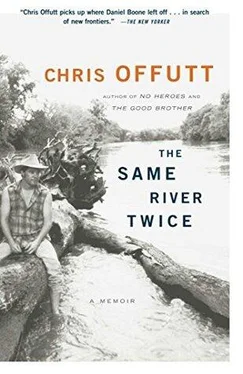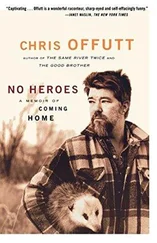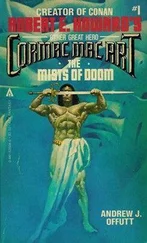I called the personnel office at the Grand Canyon and was told that the hiring was over, but that I should try the Everglades. It had a late season. I called Flamingo, Florida, and reached a man named Bucky. He said there was an opening for a Naturalist.
“What are your qualifications?” he asked.
“I grew up in the woods.”
“Well, we need a tour guide, Ours had an accident. Have you been down here before?”
“Sure,” I lied.
“I’ll pick you up in Florida City. Call me when you get there. I need a break from this swamp.”
I bought a book about South Florida and spent the evening looking at photographs of paradise. Every animal native to North America lived there. The Everglades seemed like Kentucky with alligators and a beach.
The night before leaving, I nailed my towel to the door of Shadrack’s studio, with a note telling him my plans. I decided to celebrate with a drink at one of Boston’s slickest bars. The acrylic stools were shaped like swans. On one wall hung a liquor poster urging “the art of lingering.” Cooking, war, and flower arrangement had all been elevated to the status of art, and it occurred to me that the high arts had responded by demoting themselves to craft. I decided this was why I wasn’t writing.
I went home and filled a glass with bourbon and frothing tap water. The alcohol killed the chlorine that killed the germs. This was a good old day. In New England I had no more found America than Columbus had. He died obscure, humiliated, and a trifle cracked. His bones were dug up three times, finally ensconced in a lighthouse in the Dominican Republic. At the tip of Florida, I’d be fairly close.
I rode the commuter train to 1-95, a straight shot to Florida. Boston faded into morning smog — Bunker Hill’s phallic monument that commemorated the wrong neighborhood, the icy sliver of the Hancock building, a harbor full of poison. My backpack contained spare clothes and a blank notebook with the word “Poetry” scrawled on the cover. Ponce de León had grown old traipsing Florida for the Fountain of Youth; perhaps I could find the Well of Age.
Half a dozen pillows prop Rita’s swollen body on the couch. The woman I married has been replaced by an incubator with powers of speech and thought. A blithering numbskull has replaced her husband. Our sole heat is a woodstove that warms the ceiling and leaves pockets of cold in the corners. Ice has formed on the windows inside the house. The baby has dropped. Its head is positioned correctly, nudging Rita’s pelvic exit. Her belly has tilted forward and she breathes more easily, but the change in her center of gravity affects her balance. She moves like a drunk. I scatter salt from the door to the car. It melts through snow in hundreds of tiny pocks.
After agreeing easily to a girl’s name, Rebecca Marie, we fought over what to call a boy. I want a common name that is still uncommon, an older name, one of strength, such as Oak or Thor. Rita eschews my ideas as ridiculous. Her names are fine, Ben, Jared, Lucas, but I didn’t think of them first. We make lists, writing each name on an index card, granting the other power of veto. It is like choosing a jury; we both add token names to our list for the other to deny. The rest go into separate stacks of yes, no, and maybe. The no pile is the biggest.
My father and brother share the same name, being the fifth and the sixth respectively. If we have a boy, both have urged me to use their name, continuing a line that runs to the Civil War. Rita’s father would prefer us to name a boy after his brother who died in World War II. The name is Jack, which does not jibe with my last name. Before I understood the meaning, I engaged in grade school fistfights with boys who called me that. When I make fun of the name, Rita begins to weep. After all, it is her dead uncle I’m laughing at. I apologize and prowl the house like a caged animal until she sends me to the woods.
Morning shadows are blue in the snow. Winter is a bell, a long peal of silence through the floodplain woods. Every horizontal surface is blanked white and my bad knee aches. The river is frozen along the bank, forming a white border for its flow. The ice on both sides slowly meets in the middle, joining like Rita and me on a name. The center of the river is the first to thaw. It gradually breaks itself until it reaches the shore, leaving silver shelves of ice protruding from the bank.
The woods are black and white, like an old photograph. I know the names of trees but they are only words. The Sac Indians said that kaintuck meant “river of blood.” According to them, Eastern Kentucky was filled with the ghosts of its previous inhabitants, an ancient race slaughtered to the last child. The Sac were astonished that white people would want to homestead the hills. The name itself prevented their own people from living there.
The oldest recorded personal name is En-lil-ti, carved into a Sumerian tablet from 3300 B.C. “Rita” is a Sanskrit word, meaning “brave” or “honest.” My name means “bearer of Christ,” a troublesome burden. When I was a child, Saint Christopher was removed from sainthood and I thought that meant he was bad, that I was impugned by his inadequacy. I decided to change my name but the family objected. Unbound by such fetters, a Hindu will choose a new name to mark significant personal change. Cherokee people may change their names several times to suit their personalities at different stages of life. I want a son’s name to suit him so well he’ll want it for life.
At the river’s edge I begin tracking a deer. The prints are coming my way, which means I’m not following the deer but trailing it in reverse, going where it came from. The snow inside each print is compacted but loose, a fresh trail. I find where the animal ducked a low branch, knocking snow from the bough. I duck under it too. The tree limb brushes my back as it brushed the deer. The tracks end on a slight rise forty yards from the river at a spot that is protected from wind. An oval swatch of earth is imprinted in the snow. The deer slept here last night, melting the snow beneath it. I’ve found where it sleeps, giving me a power as ancient as knowing a wizard’s name.
I crouch at the perimeter and retrieve a few lost hairs. They are stiff bristles an inch long, two of which are tipped in white. I push them into my beard and lie in the bed of the deer. Its heavy musk clings to the dirt, full of mystery and strength. In the fifth century, Parmenides said, “All things are a name where mortals lie down.” The bottoms of trees fill my vision, becoming a solid wall in the distance. I pull into a tighter ball. The ground is cold against my face. I try to imagine sleeping through the darkness here, comfortable with the sounds of night, waking at first light. Tree limbs interlace around me, edged with snow that’s white as milk.
In olden times, women gave the children names, an act connected with lactation. Eating was evidence of life, and life demanded a label. Since the men didn’t nurse, they were excluded from the process of naming. French women still give infants a milk name, a temporary appellation while the child is nursing. This name embodies the soul and is kept secret. Inuit society requires a three-day waiting period before naming a newborn. They want to examine it first, ensure that its presence is acceptable to the community. Until the baby is named, it is not considered human.
I realize that I’m quite cold. My weak knee throbs, my bad ear aches. I haven’t been lying here very long and already I’m uncomfortable. The recognition of such simple failure is worse than my fears of being a lousy father. I uncurl and rise, moving through the timber. Wind off the river scorches my face. I think of Adam, the unremitting pressure of naming every creature. Each word he uttered became a noun.
Читать дальше












